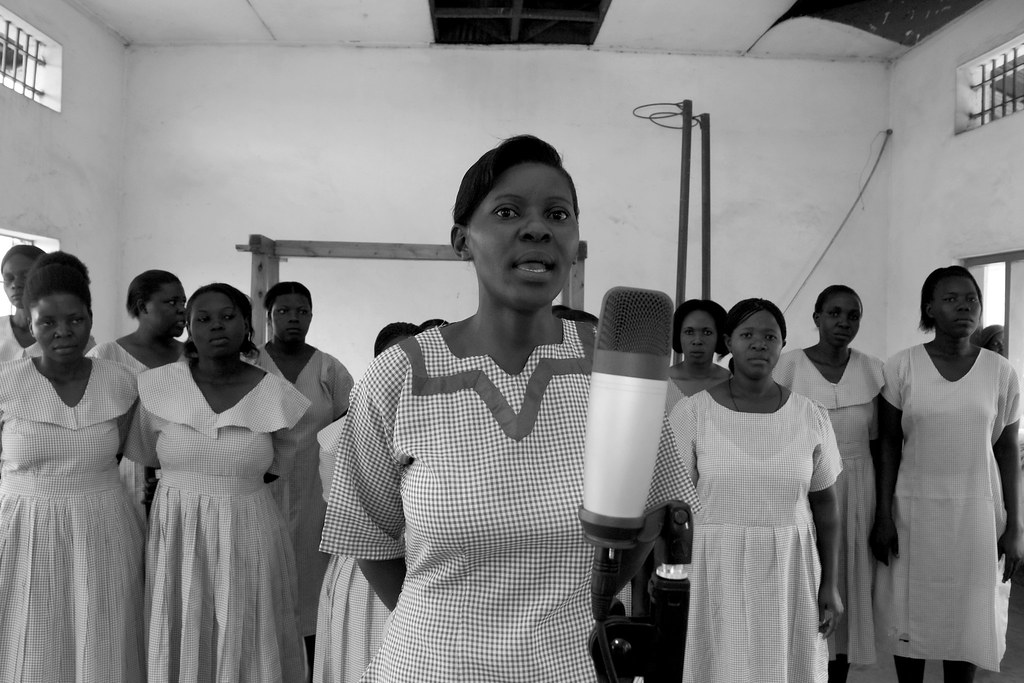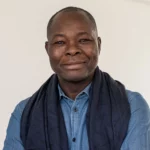Imagine planning out all the beautiful aspects of your life and hoping to achieve all your dreams, only for life to ‘happen’ to you. This is the story of Susan Kigula whose aspirations were dashed before she had a chance to run the race.
Susan Kigula was still a young mother when she was convicted of a crime she did not commit. While in her cell in Uganda, awaiting the day she would be put to death by hanging, Susan created a choir and took on the laws supporting the death penalty.
It was in prison that she studied law and intends to go further and set up the first legal chambers staffed by lawyers behind bars.
As a child, Susan was ambitious and wanted to work in a bank to earn enough money to take care of her family. Although she wanted to finish high school, she was forced to take up a series of jobs to help her parents cater for the household.
Susan first worked in a gift shop then started her trade in textiles. It was during this time she met the man who would later become her husband, Constantine Ssremba. “We became friends and it led to our relationship. He was sweet, loving, and I was young….that guy was handsome and he tells me he loves me and I see it in his eyes. I fell in love with him of course.”
However, little did she know that the trajectory of her life was about to change completely.
Susan moved in with her loving husband when she was then, pregnant with their daughter. Their household was also made up of Constantine’s 3-year old son, a 6-year old daughter from his previous relationship and a maid. She described their home as contended adding that, “contentment is not derived from riches”. Like any couple, they had plans to build a house, have more children and have a beautiful model family.
Young Susan would have been happy for her older self because this seemed like a perfect start to the family life she always dreamt of having.
All of this came tumbling down suddenly one evening after dinner when the family went to sleep. In the wee hours of the night, Susan felt a sharp object against her neck. Her attacker was hidden by the pitch darkness of the night. A glimpse of light coming from outside through the vents gave her a clearer sight of a man bleeding and groaning. A shocked Susan did not realise she was equally bleeding from her earlier attack.
“I was just feeling a warm fluid coming from my neck, flowing down my back. Until when I ran out screaming – that’s when I realised I was bleeding. I was calling for help from the neighbours, my house help and I but they were looking at us from their windows.”
“Our housemaid Patience ran into the room saying she had seen two people run out of the flat moments earlier. My vision was blurring and I was unsteady on my feet as I made my way outside to alert the neighbours to come to help us. I saw a couple of figures running away, but they could have been anyone at this point, I can’t be sure they were my attackers. I made it to a restaurant outside where I was given a blanket, I hadn’t realised that I had run out of the house naked. I was still bleeding and then my vision started blurring. I passed out.”
Police later confirmed that a blood-stained panga, a machete-like farming tool that was found in the doorway to the bedroom of the flat belonged to Kigula.
Susan was rushed to the hospital with no knowledge of what had just happened nor the whereabouts of her partner, Constantine.
Unknown to her, he did not survive the attack by the unknown assailant. When her relatives visited her in the hospital, none of them could break the sad news to her.
“They said he was in a hospital ward, I believed them because I could not even think he could die,” she said.
However, she heard the news of his death on a car radio while she was en route to a private hospital for care.
The news presenter announced that Constantine Sseremba and his 21-year-old partner, Susan Kigula, had both been murdered in a bungled burglary.
Despite her predicament, she trusted the police to catch the killers who were still at large but that was not the case.
On the contrary, three days later, Kigula, who was still receiving treatment for her large neck wound, received a visit from the police. They charged her with murder and took her straight to a maximum-security prison on the outskirts of Kampala, to await trial.
Sseremba’s family said that her three-year-old stepson had seen Kigula and the housemaid kill his father. The court case was hinged entirely on his testimony.
“He said he saw me and the housemaid kill his father. I don’t blame him, he’s just a child and I’m not angry with him. To my shock, the police instead arrested me after 3 days of burying the late. It was a nightmare. Whilst I was still mourning the man I loved, to be honest, I wish I was the one who had died,” Susan said in a shaky voice.
She stayed in prison for two years before her trial came off.
“I had all the hope in this world that they would find me innocent. I really thought that the Judiciary was fair and just. I was very confident that the truth would be uncovered,” she admitted.
Kigula was unfortunately imprisoned in 2000 along with her maid Nansamba Patience, she was accused of the murder of her partner, Constantine Sseremba.
“I wanted to die there and then. I couldn’t believe my ears and that God had allowed all these injustices to take place. I stopped breathing, I saw the world crumbling around me.”
After being sentenced to death by hanging in 2009, she lived each day in constant fear and uncertainty of when her life would be taken from her. Her baby was far away from her and this gave her bouts of worry. After some months when she got over the grief of her sentence, she sent for her child.
“I didn’t want to see her immediately because I was crying all the time,” she recounted.
A timely visitor and the pursuit of justice
In 2005 a 20-year-old British student Alexander McLean was taking a break from his studies, after obtaining a law degree.
After finishing school, a few years earlier, McLean had volunteered at Mulago Hospital in Kampala, hoping to bulk up his CV for university, and had been deeply disturbed by the dire conditions there.
It was there he met Susan who worked as his translator. She had spent five years in prison at the time.
During her time there, Kigula mobilised a choir consisting of her fellow inmates, wrote songs, started playing netball and led the prison dance troupe. She stayed positive by keeping like-minded inmates around her.
“I realized that if we keep crying, it was sucking the life out of us so I encouraged the ladies to sing. They embraced it so we formed a powerful choir. “
“None of them really deserved a death sentence because most had committed crimes of passion. Some were defending themselves from abusive husbands. I asked most of them what they felt and how they thought about the trials they went through and most of them told me they did not even understand the proceedings that were carried out in court because they were carried out in English.”
It is based on this that Susan was poised to spread education in the prison. When Kigula learned that the men in the neighbouring wing had access to education whereas women prisoners did not, she asked the prison administration if a small group of them could take courses in History, Economics, Divinity and Management at the secondary school level.
There was nobody to teach them thus, after getting the necessary approval from the authorities, she took it upon herself to study to teach her colleagues. They held their classes under trees.
According to Kigula, the prison wardens provided support and encouragement. When she finally took the high school exams, her results were among the best in the country.
McLean, the volunteer law student she met at the hospital had been working with Ugandan authorities to improve conditions beyond the sickbay too. His organisation sponsored sports activities, run mother-and-baby reading groups and adult literacy classes.
Kigula acted as a liaison between the charity and the prison authorities on a project to open a prison library. She was awarded a scholarship by the African Prisons Project for this purpose. She went on to meet the founder of the organization who encouraged her to pursue law.
“I told him I can’t do it, I hate the law, I am a victim of injustice and I don’t want anything to do with law. But he told me “Yes it can start with you”.”
In 2011, Kigula and a group of other prisoners, supported by the African Prisons Project, became the first Ugandan prisoners to take a correspondence course with the University of London, studying law. “Whether in rain or sunshine, I was determined,’ Kigula said. The highly successful project resulted in prison staff coming to her for legal advice.
Subsequently, Kigula started a legal clinic in prison to help fellow inmates with bail applications, writing memorandums of appeal for them, and teaching them how to represent themselves in court, if they couldn’t afford a lawyer. She helped dozens of inmates get released from prison.
“I was very happy because this yielded results, many of them were released, others were given lesser sentences,” she said.
Emboldened by her academic success, Kigula decided, even before she completed her University of London degree, to organise a petition challenging Uganda’s mandatory death sentence. The process took take years.
Susan Kigula and 417 others vs Attorney General is a groundbreaking case. The petitioners, all on death row, aimed to abolish capital punishment by declaring it unconstitutional.
When the Supreme Court of Uganda gave its ruling, on 21 January 2009, it did not abolish the death penalty. However it did rule that a sentence of death should not be mandatory in cases of murder and that a condemned person should not be kept on death row indefinitely – if a convict is not executed within three years, the sentence is automatically turned into life imprisonment. And, in light of these changes, the Supreme Court ruled that death-row inmates could go back to the High Court for retrial.
“I was the leading petitioner in the famous case. We partially won the petition. In that, even if the death penalty was found to be constitutional, the mandatory death penalty was not and hence was abolished in Uganda. What I can remember vividly well was the feeling when I saw death row inmates leaving the death row section into the main prison and they were many – chanting, shouting, screaming happy and crying. I could not believe my eyes, I was very happy seeing how these people had been given another chance to live,” she said.
Susan on the other hand was resentenced by the High Court to 20 years in prison but with four taken off for her time in remand, Kigula was released from prison in January 2016.
Life after prison
Finally, she was free again. Kigula could not believe she was no longer condemned to death and was out of prison after all those years.
“It was a fast wonderful feeling that I felt when I was going out of the prison. I couldn’t sleep that night, I stayed awake with my friends,” she said.
Her father had died while she was in prison and her mother had been killed in a road accident just two months before her release.
Her daughter was 17 years old at the time of her release.
The world itself including technology had advanced over the 16 years she spent in prison something she found new because “we were locked in before dark and during the day, we never saw the stars and moon”.
“My daughter calls me her hero. That was all I needed to hear after 16 years away from her. Life is good again,” she says.
Kigula is now pursuing new goals. She is pushing for authorities to reduce the sentence of the remaining 417 inmates from her petition – although dozens were released like her, some are still behind bars. Kigula plans to establish the world’s first prison-based legal college and law firm, where prisoner lawyers would represent peers who cannot afford legal help with help from Alexander McLean and African Prisons Project.
Susan, however, is grateful for the turn her life took as it helped her achieve bigger things than she dreamt of. “They thought they had robbed me of life instead, they had given me a life. I would not have had a positive impact on people’s life the way I do so I am not angry at them at all,” she stated.
As for her prison choir, she plans to record an album of all their songs.
Kigula challenged the death sentence ruling in the Supreme Court of Uganda, resulting in changes to Ugandan law regarding the death penalty. The two principal changes were: the death sentence was no longer mandatory in cases of murder, and the death sentence would be commuted to life imprisonment if the execution was not carried out within three years of sentencing. As a result of these changes, around 180 prisoners on death row had their death sentences rescinded.
In November 2011, at a retrial, Kigula’s sentence was reduced to 20 years in prison.[5] She began to study for a law degree, which she completed in 2018.[6]
Kigula was released from prison in 2016. She maintains her innocence concerning Sseremba’s murder.





















